A missional theology…appl ies to the whole of life of every believer.
ALAN HIRSCHBeing the church that Jesus intended means that we must participate in God’s eternal purposes for his world.
More Alan Hirsch Quotes
-







-





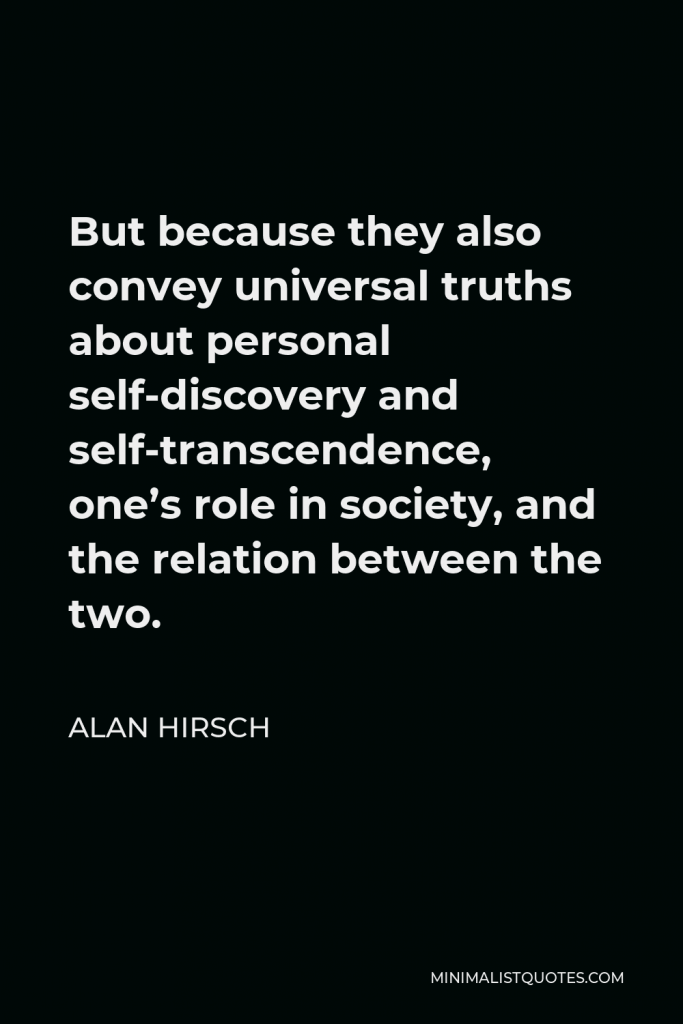

But because they also convey universal truths about personal self-discovery and self-transcendence, one’s role in society, and the relation between the two.
ALAN HIRSCH -







A missional church is a church that must live the dialectic. It must stay in the journey.
ALAN HIRSCH -





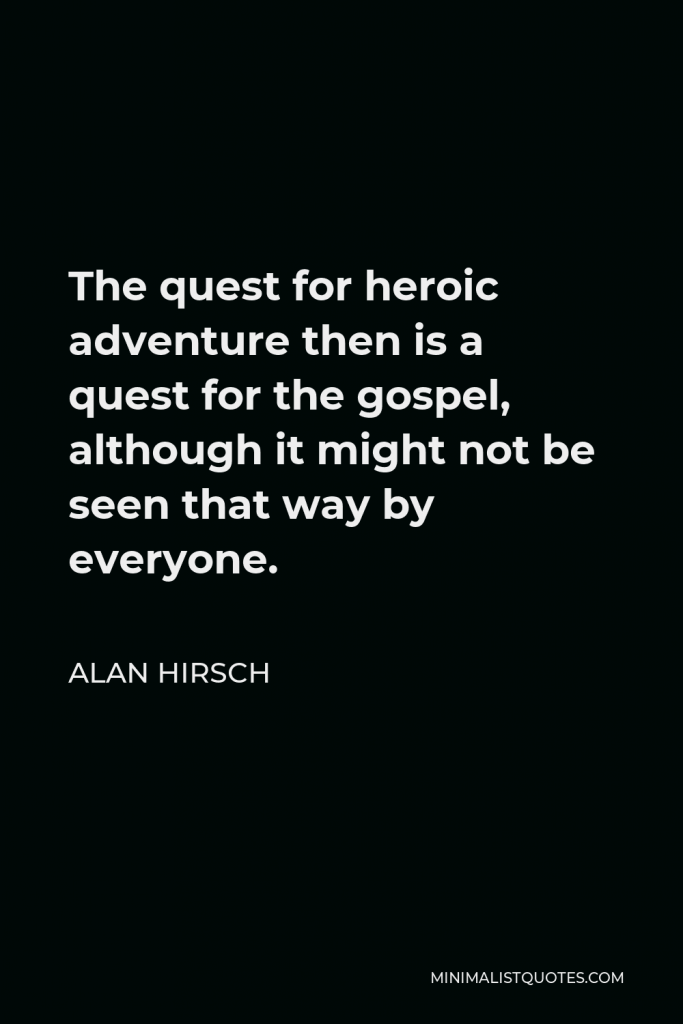

The quest for heroic adventure then is a quest for the gospel, although it might not be seen that way by everyone.
ALAN HIRSCH -







Mission is the practical demonstration, whether by speech or by action, of the glorious lordship of Jesus.
ALAN HIRSCH -







Christianity is an adventure of the spirit or it is not Christianity.
ALAN HIRSCH -





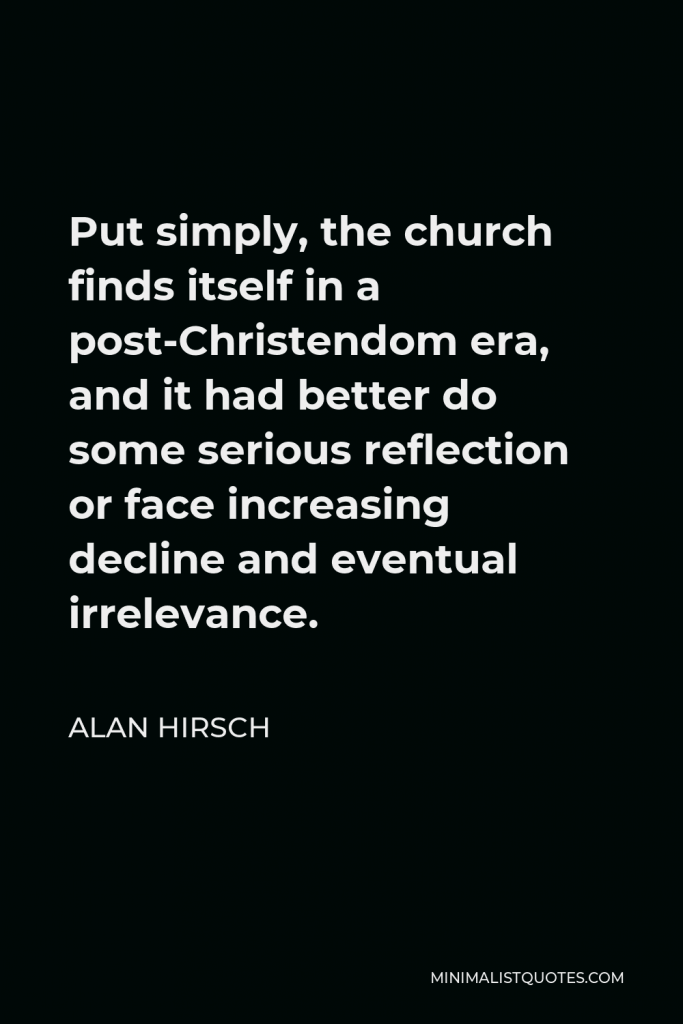

Put simply, the church finds itself in a post-Christendom era, and it had better do some serious reflection or face increasing decline and eventual irrelevance.
ALAN HIRSCH -





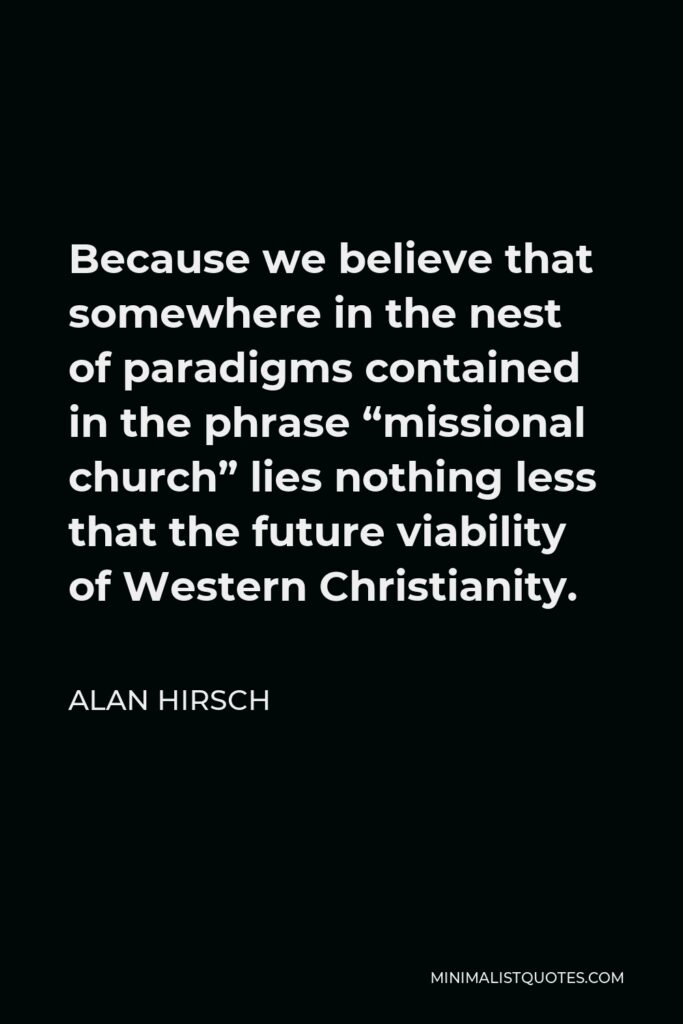

Because we believe that somewhere in the nest of paradigms contained in the phrase “missional church” lies nothing less that the future viability of Western Christianity.
ALAN HIRSCH -





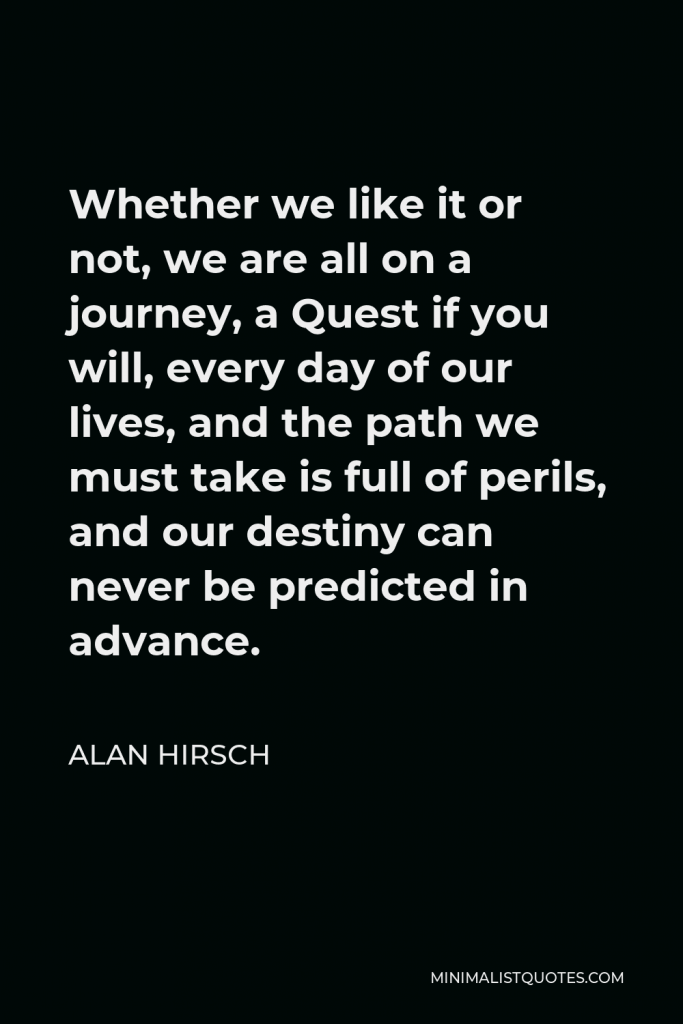

Whether we like it or not, we are all on a journey, a Quest if you will, every day of our lives, and the path we must take is full of perils, and our destiny can never be predicted in advance.
ALAN HIRSCH -







You cannot sell a Christendom approach to a post-Christian world. They are anti-Christian.
ALAN HIRSCH -







To obstruct this is to block God’s purposes in and through his people.
ALAN HIRSCH -







Many church folk, in their self-conscious attempt to be overtly morally upright, emit all the wrong signals, thus messing with people’s perception of the gospel.
ALAN HIRSCH -







A retreatist spirituality is not a spirituality that can, or will, transform the world in Jesus’s name.
ALAN HIRSCH -







And if they begin with this mistaken belief about their position in Western society, all their church planting.
ALAN HIRSCH -





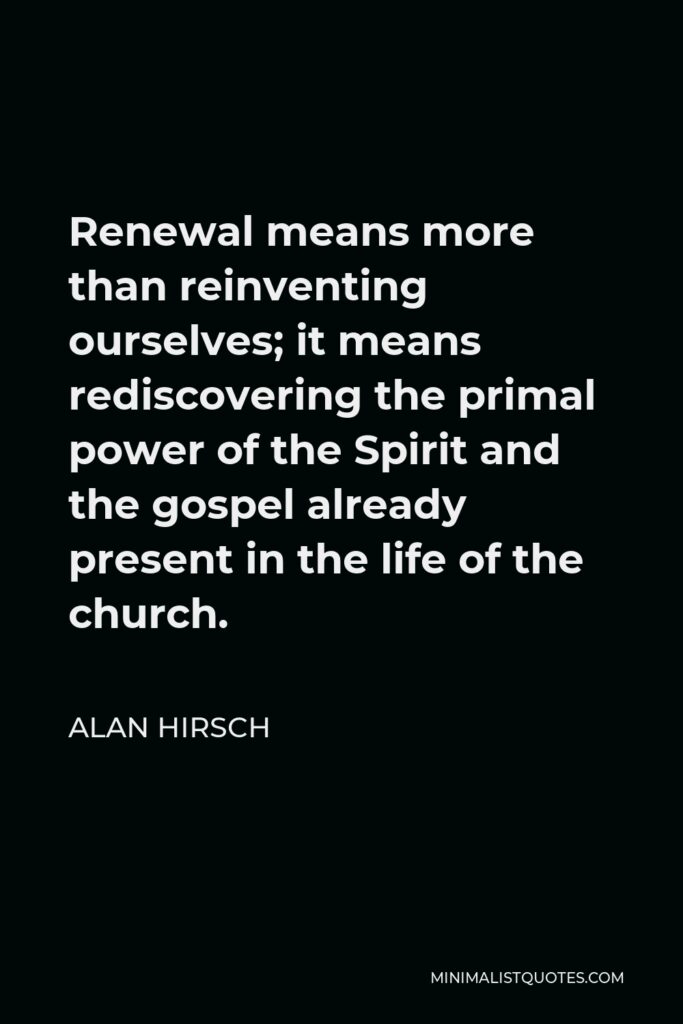

Renewal means more than reinventing ourselves; it means rediscovering the primal power of the Spirit and the gospel already present in the life of the church.
ALAN HIRSCH -





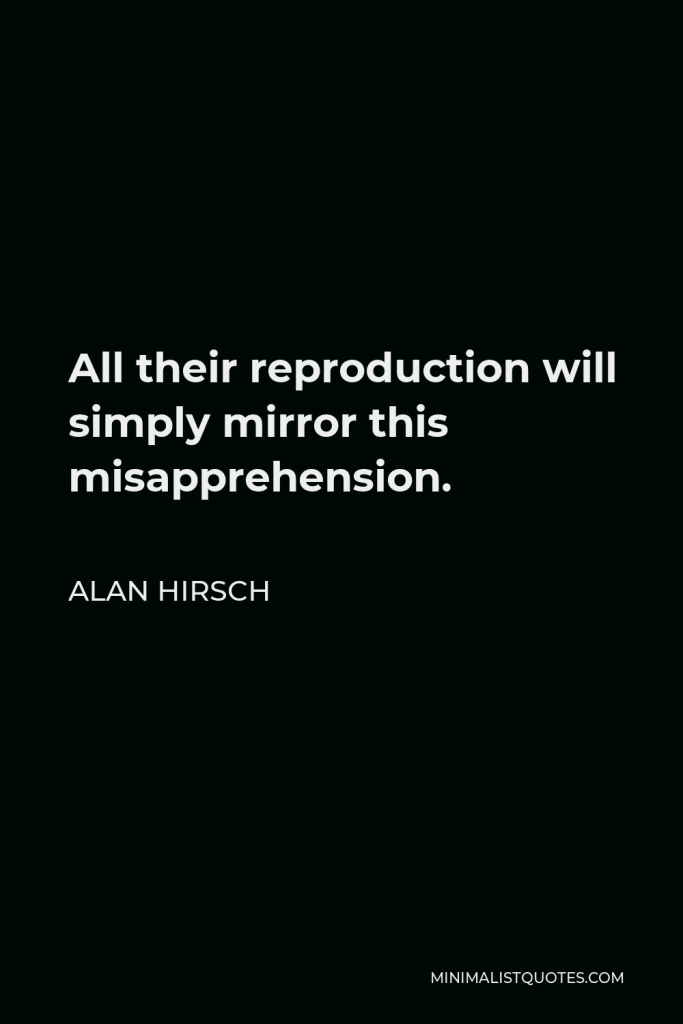

All their reproduction will simply mirror this misapprehension.
ALAN HIRSCH







